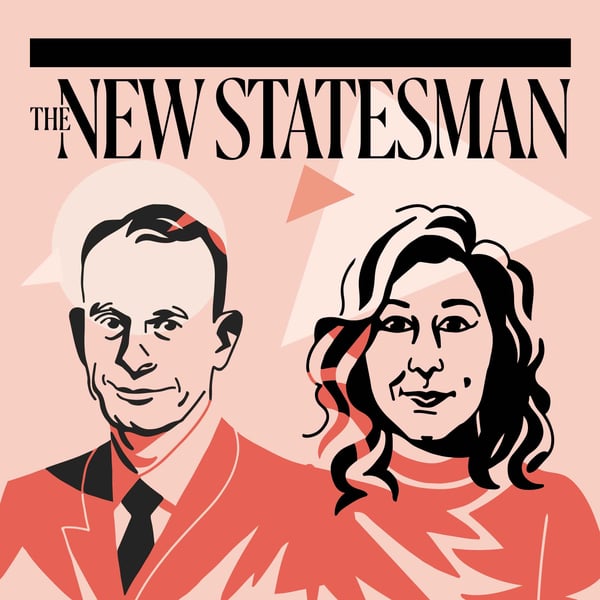The trappings of Western hyper-liberalism | Conversation
The New Statesman | UK politics and culture
The New Statesman
4.4 • 1.4K Ratings
🗓️ 4 September 2023
⏱️ 29 minutes
🧾️ Download transcript
Summary
Can liberalism survive the horrors of our modern world?
Will Lloyd is joined by John Gray political philosopher and author of The New Leviathans: Thoughts After Liberalism. They discuss how Thomas Hobbes seminal work Leviathan can be reinterpreted in the 21st century, particularly in the contexts of Russia, China, and the liberal West.
Read more of John Gray's work here: https://www.newstatesman.com/author/john-gray
Submit a question for You Ask Us:
https://www.newstatesman.com/YouAskUs
Download the app:
iOS: https://apps.apple.com/gb/app/new-statesman-magazine/id610498525
Android: https://play.google.com/store/apps/details?id=com.progressivemediagroup.newstatesman&hl=en_GB&gl=US
Subscribe to the New Statesman from £1 per week:
https://newstatesman.com/podcastoffer
Sign up to our daily politics email:
https://morningcall.substack.com/
Hosted on Acast. See acast.com/privacy for more information.
Transcript
Click on a timestamp to play from that location
| 0:00.0 | I'm Will Lloyd, commissioning editor and writer for The New Statesman. You're listening |
| 0:09.6 | to The New Statesman podcast. In this episode, I'm speaking to the political |
| 0:13.3 | philosopher John Gray, whose fascinating new book re-contextualizes Thomas Hobbes' |
| 0:17.9 | seminal philosophical text, Leviathan, for the 21st century. |
| 0:22.1 | Nature, the art whereby God hath made and governs the world, is by the art of man as in many |
| 0:33.9 | other things, so in this also imitated that it can make an artificial animal. With those |
| 0:41.0 | words, Thomas Hobbes begins Leviathan, one of the most influential works of philosophy |
| 0:45.6 | ever written. Ever since it was published in 1651, Leviathan has unsettled and challenged |
| 0:52.1 | how we see the world. Hobbes' stark political vision continues to see through every generation's |
| 0:58.0 | ethical and political vanities. In The New Leviathan's John Gray illuminates the insoluble |
| 1:05.4 | dilemmas, paradoxes, and absurdity of our world today, four centuries after Hobbes' death. |
| 1:13.2 | Lively, wide-ranging, provocative, and realistic, The New Leviathan's is, like everything John |
| 1:20.6 | writes for the New Statesman, filled with fascinating and daunting perceptions. He joins |
| 1:26.3 | me today to discuss the life and work of Thomas Hobbes and the New Leviathan's that prowl our |
| 1:32.3 | own times. So John, when did you first read Thomas Hobbes and what was your initial reaction to his |
| 1:39.2 | writing? I must have first read Hobbes, and that would have been Hobbes' Leviathan, |
| 1:46.1 | when I was in my late teens, and my initial impression was partly stylistic, which is that I admired |
| 1:56.1 | the vigor, what I call in my book, the lapidary finality of his pro-style. He's a great pro-stylus. |
| 2:05.7 | There's a certain almost brutality in his way of writing whereby he forces home |
| 2:14.5 | truths that most readers then, when he published the book in the 17th century, and later in the 20th |
| 2:23.0 | century, when I read it in the 1960s, that most readers don't want to accept. In terms of the argument, |
| 2:30.9 | I thought the argument, then, the basic claim of Hobbes, which is that the default condition of |
... |
Please login to see the full transcript.
Disclaimer: The podcast and artwork embedded on this page are from The New Statesman, and are the property of its owner and not affiliated with or endorsed by Tapesearch.
Generated transcripts are the property of The New Statesman and are distributed freely under the Fair Use doctrine. Transcripts generated by Tapesearch are not guaranteed to be accurate.
Copyright © Tapesearch 2025.

